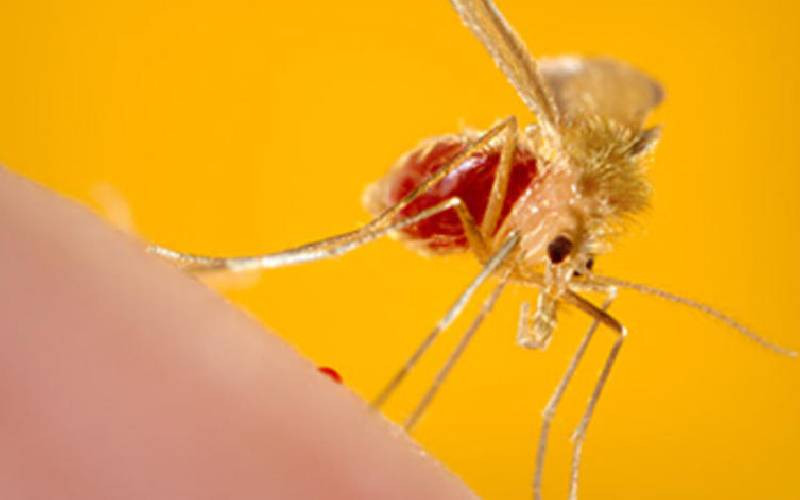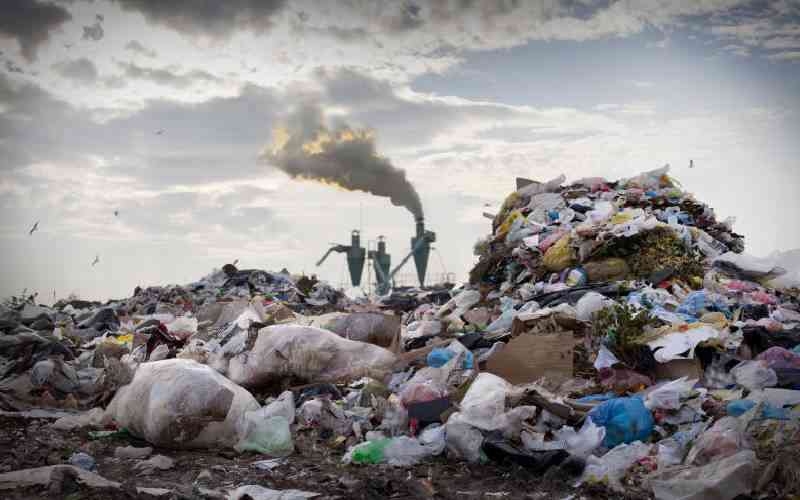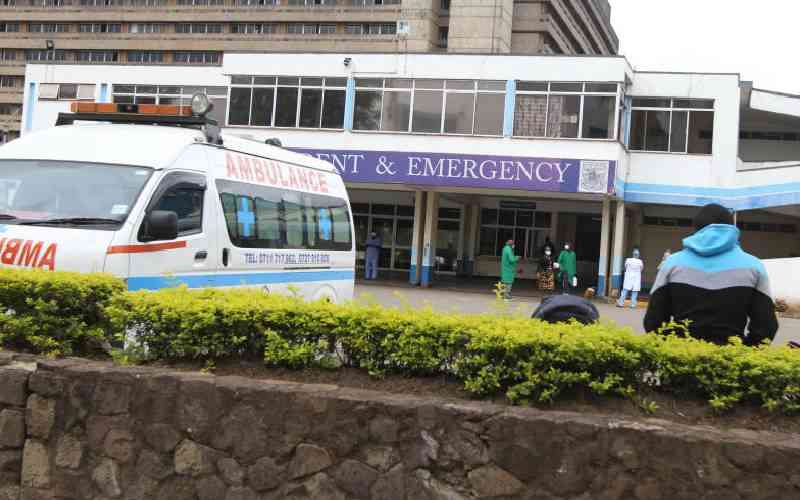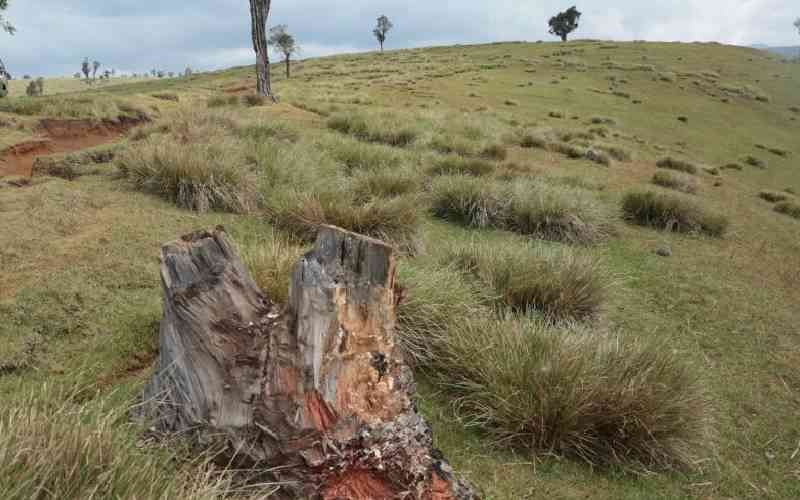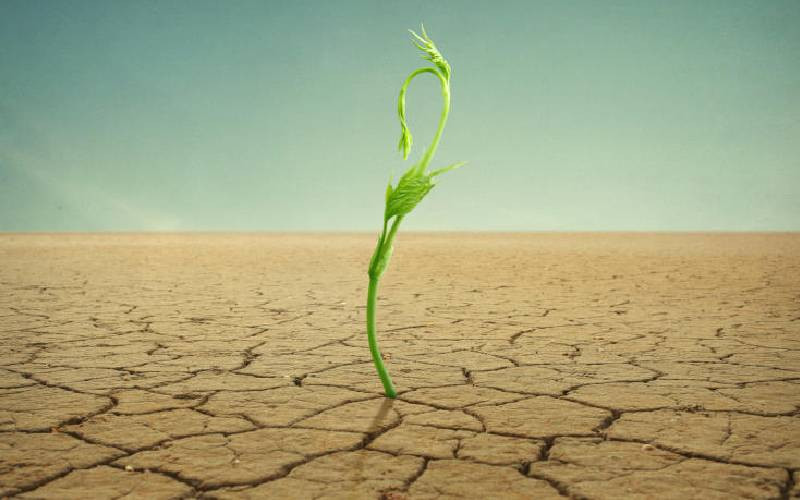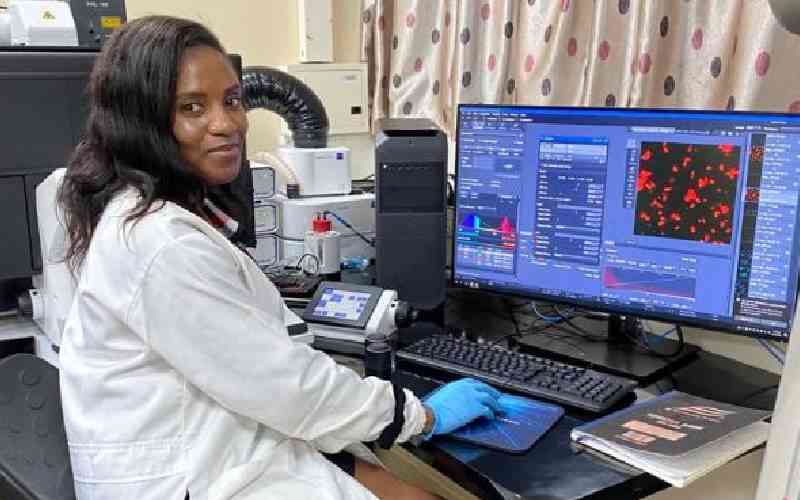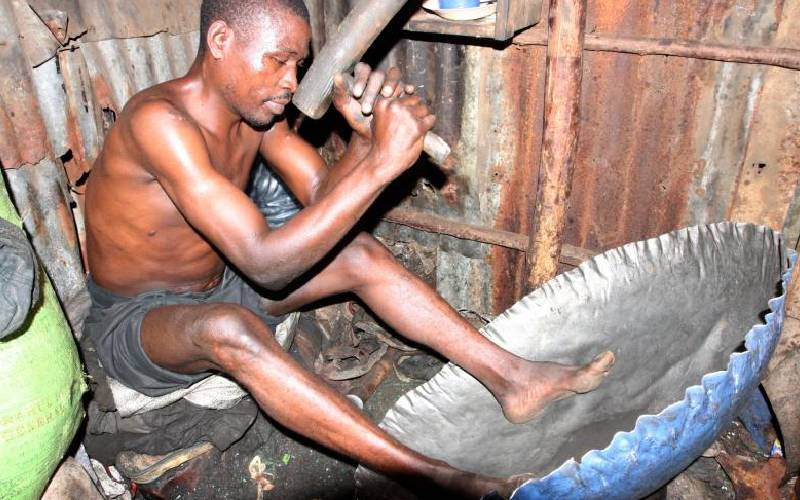
A Jua kali artisan chisels a metal sheet to make a frying pot at Kibuye market in Kisumu.[Collins Oduor,Standard]
With the hope of securing formal employment after completing his studies dashed, Alfred Shiundu joined the Jua Kali sector. But just three years later, the artisan developed hearing problems.
Shiundu,50, said he first experienced pain in one ear and after several months, he started having hearing difficulties.
Today, the father of four finds it hard sustaining a conversation - he is partially deaf.
His hearing impairment is attributed to hazardous noise at Kamukunji in Nairobi, one of the biggest workstations for Jua Kali artisans in Kenya.
“I joined the Jua Kali sector in 1998. The loud noise affected my hearing. During phone conversation, the other person has to keep shouting,” Shiundu told The Standard.
Yet Shiundu cannot access quality healthcare due to financial constraints.
“Sometimes I only use ear drops to ease the pain. May be things would be better if I had compressive health cover,” he told The Standard from his work station.
Globally, hearing loss currently affects over 1.5 billion people. Of these, 430 million have moderate or higher levels of hearing loss. WHO estimates that by 2050, nearly 2.5 billion people will be living with some degree of hearing loss.
Out of the 2.5 billion, at least 700 million people will require rehabilitation.
In Kenya, at least two million people have hearing challenges.
Sarah Ndegwa, a consultant audiology and a lecturer at the University of Nairobi, said those working in the Jua Kali sector are at the risk of developing hearing problems due to the loud noise they are exposed to. “Noise in most Jua Kali workshops is normally more than 100 decibels (dB). A sound’s loudness should be less that 85dB,” she said.
“At least 20 per cent of those exposed to excess noise develop hearing loss,” said Ndegwa. She advised artisans to wear earplugs to reduce the amount of noise getting into their ears.
In 2916, Kenya developed the National Ear and Hearing Care Strategic Plan to help manage hearing impairment, which has enhanced Kenya’s response to global resolutions on ear and hearing care.
The document has also helped in the recognition of speech therapists and audiologists, even in the civil service. It has also seen hearing aids made part of the benefit package under the National Health Insurance Fund.
And while speaking during commemoration of World Hearing Day on March 3 themed ‘Hearing for All’, Dr Patrick Amoth, health director general said they are keen to promote neonatal hearing screening, a quick procedure that checks a baby’s hearing and identifies those babies who need further testing.
He said they are also working with other relevant ministries to reduce exposure to loud noise at the work place and social and entertainment joints by enforcing noise control regulations.
“We’ll consider integrating Ear and Hearing Care into the healthcare systems and make it part of UHC,” said Amoth.
 The Standard Group Plc is a multi-media organization with investments in media platforms spanning newspaper print
operations, television, radio broadcasting, digital and online services. The Standard Group is recognized as a
leading multi-media house in Kenya with a key influence in matters of national and international interest.
The Standard Group Plc is a multi-media organization with investments in media platforms spanning newspaper print
operations, television, radio broadcasting, digital and online services. The Standard Group is recognized as a
leading multi-media house in Kenya with a key influence in matters of national and international interest.


